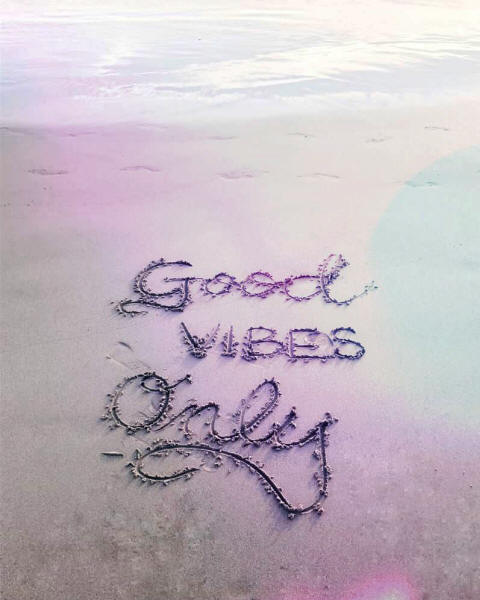|

by Aletheia Luna
October 2018
from
LonerWolf Website
Spanish version
|
Aletheia Luna is an influential psychospiritual writer
whose work has changed the lives of thousands of people
worldwide.
After escaping the religious sect she was raised in,
Luna experienced a profound existential crisis that led
to her spiritual awakening.
As a
spiritual counselor, diviner, and author, Luna's mission
is to help others become conscious of their entrapment
and find joy, empowerment, and liberation in any
circumstance. |

Conflict is not exactly something we enjoy...
UNLESS of course, you have a psychological addiction to creating
drama (see
drama queens). In which case you may want to seek
therapeutic intervention.
No, in general, most of us seek a conflict-free life in which we are
liked and accepted by those around us.
Very few people like
being disliked (unless you are some kind of anarchic masochist).
Most people want to fit in, be validated, agreed with, and approved
by others… which is all very normal.
But what happens when this desire to avoid conflict becomes
pathological?
The answer is that we become people-pleasers; sacrificing our
authenticity to fit into a cookie cutter mold that is given the tick
of approval by others.
Not only that but when avoiding conflict becomes pathological we may
even start to adopt a "good vibes only" approach to life.
Let's face it:
on the surface, this appears kind of cute and has a
faux-spiritual-new-age ring to it. But adopting this
"positive-attitudes-only" philosophy to life is actually one of the
most emotionally, psychologically, and spiritually detrimental
attitudes you can adopt.
Why?
Because when we are trapped in the cycle of seeking positive vibes
and avoiding conflict, we are not actually growing as people.
Not only that, but we can
actually become what I call "negativity-phobic" meaning that we
develop a phobia surrounding conflict that can result in some pretty
extreme and ironically negative behavior.
The Bullsh*t
of "Good Vibes Only"

I have met and seen my fair share of good-vibe-only people in my
field of work.
I also am the creator and
admin of four Facebook groups, which at the time of writing, have a
collective total of 300,000+ members.
One thing I have noticed that has popped up consistently, no matter
the environment or context, is that people don't like critical
thought. Critical thought is generally perceived as something
"negative" and unsavory.
Questioning and pointing
out flaws and logical fallacies is something generally frowned upon
and is almost immediately shunned, along with the person, who is
perceived as a,
"troll,"
"trouble-maker," "argumentative person," or most unfortunate of
all, an "unawakened person"...
Not only that, but most
people in the "spiritual" and self-help communities tend to be
highly reactive towards any form of emotional conflict - or at best,
passive-aggressive and self-righteous.
It's as if the spiritual
ego that people adopt adds an extra layer of difficulty in dealing
with negativity.
We develop these strong
ideals and beliefs about life based on regurgitated spiritual
rhetoric, such as,
"All is Love"
"Love and Light"
"Think happy
thoughts",
...that when someone comes along as shits over that, we're
shocked.
I think this shock is the result of fear and anger.
Fear that we might be
wrong.
Fear that our
spiritual beliefs are no longer pacifying or creating a comfort
bubble around us.
And anger because we
instinctively want to defend ourselves - the ego doesn't like to
be challenged or disproved.
The ego wants to feel
spiritually righteous; it wants the laziness of "good vibes only"
because there is no challenge and therefore no threat.
But wanting and desiring "good vibes only" means that we are in a
constant state of resistance to reality.
Trying to create a "good
vibes only" life, while understandable (especially if you've
struggled with a lot of sadness, loss, and self-hatred in the past),
limits your growth on every single level.
Why is demonizing and avoiding conflict limiting to your growth?
We'll explore that next.
Why Conflict
is a Powerful Teacher
I am not innocent nor am I immune to the struggles of the "spiritual
ego."
As a person who was
raised in a fundamentalist christian environment, I was taught to
defend my dogmas, resist others, while at the same time trying to
avoid conflicts and convert others.
Fast-forward to meeting my partner and co-writer of this site,
(Mateo) Sol, or shall I say:
Shiva, the destroyer
of worlds...
Entering a relationship
with this man was
an ego death, the most ego-destroying thing I have
ever experienced - and I say that as a good thing. Getting into
frequent conflicts in the early years of our relationship was the
single most important thing that helped me to spiritually awaken.
Sure, it wasn't pretty. I often felt a lot of self-pity, resentment,
and anger surrounding my beliefs being systematically challenged and
destroyed.
But it was keeping an
open heart to this conflict and choosing to learn from it that
transformed my life forever.
Without having someone call bullshit on all the ways that I lied to
myself, I would never be where I am today.
Without having someone
point out to me where I was mistaken/wrong, it would have taken me
years to develop the self-insight I now possess.
So here is why conflict is such a
powerful teacher:
-
Conflict helps
you to actively develop more patience and forbearance around
others.
-
Conflict helps
you to "see beyond the veil" of another's actions and
develop deeper insight and compassion for them.
-
Conflict reveals
your own areas of vulnerability and insecurity.
-
Conflict shines a
light on your shadow tendencies.
-
Conflict can
point out where you're genuinely going wrong.
-
Conflict is a
no-bullshit teacher that reveals how you can grow more.
-
Conflict is a way
to test your emotional and spiritual maturity.
Having someone say "no,
you're wrong, and here's why" or "that is totally ridiculous" is an
immensely valuable gift.
Even if the person is NOT
coming from a conscious or caring place, it is a gift to experience
conflict for others, for it reveals the truth about ourselves.
The way in which we
react to others speaks volumes about our capacity to practice
kindness and understanding.
The way in which we react to others is a reflection of our own
level of maturity or immaturity.
The way in which we react to others is a mirror of our own pain,
insecurities, and fears.
There is a big difference
between responding and reacting.
Responding comes from a centered
place of awareness and understanding.
Reacting comes from
unawareness and ignorance.
Do you feel mentally or emotionally threatened by another person who
is "calling bullshit" on you or challenging you?
Do you feel
insulted by another person?
GOOD...
Find the lesson. Uncover
the spiritual teaching. This person is your tough-love-boot-camp in
the flesh.
Instead of reacting mindlessly to them, stop and be present. Be
curious.
-
Why is this
person treating you in such a disrespectful way?
-
Why does your ego
feel so hurt?
-
Do you secretly
believe that the person might be right?
-
Why is this a bad
thing?
-
What is the real
cause of the other person's aggression?
-
What is behind
their anger?
Ask questions and be open
to accepting the truth.
Ultimately your decision to learn from
conflict comes from a choice:
Do you choose to use
spirituality as a pacifier that bolsters your ego and makes you
feel comfortable?
Or do you choose to
use spirituality as a way to pursue truth and authentic inner
growth, which can be uncomfortable at times?
9 Signs You're
Negativity-Phobic

Ideally, all spiritual practices would help us respond with
maturity, compassion, and understanding towards negativity. But that
is not always the case.
Are you negativity-phobic?
Read the following signs
for some clarity:
-
You avoid people
or situations that create uncomfortable feelings in you at
all costs
-
You are attracted
towards the lighter and more ‘higher-conscious' aspect of
spirituality, but feel repelled (and maybe also irresistibly
drawn to) the shadow side or Underworld path of spirituality
-
You can't handle
criticism well (even if it is a well-meaning critique) and
feel upset
-
You feel
unusually defensive or on-guard around others
-
You're highly
sensitive to people's thoughts and opinions about you
-
You intentionally
try to block out all forms of negativity from your life
-
You refuse to
acknowledge your shadows
-
You tend to be an
idealist
-
You feel intense
and overwhelming emotions such as anger, fear, hatred, or
disgust when you're confronted with a negative person
How many of these signs
can you relate to?
Be honest. If you're
serious about consciously evolving, it's important to face reality.
How to Embrace
Conflict
Embracing conflict doesn't mean enjoying it or seeking it out...
Instead,
embracing
conflict is about adopting a mindful attitude that values the
experience as something useful to learn and grow from.
From a hell-of-a-lot of experience with conflict, here is what I've
learned:
1. Stop and take a
deep breath. Catch yourself before you react. Walk away if you
must. Take a few moments to gather yourself, and then respond.
2. Ask yourself,
"What is this
person or situation secretly teaching me?"
Sure, the person
might be acting like an asshole, but what message is being
embodied through their actions?
3. Be curious and adopt an attitude of interested awareness when
you feel triggered. Look at the emotions surging through your
body. Examine the thoughts in your mind. Take note of how you're
feeling.
To do this, you need
to practice mindfulness.
4. Ask yourself,
"What is actually
hidden behind this person's anger?"
Stop taking emotions
and apparent motives at face value.
Try to think of all
the possible reasons why the person is acting out or trying to
hurt you.
For example,
-
Maybe they have severely low self-worth.
-
Maybe they are lonely
and want attention (whether good or bad).
-
Maybe they just went
through a breakup.
-
Maybe one of their loved ones just died.
-
Maybe they're experiencing a stressful day.
-
Maybe they feel
angry and sad about life.
Be open to
alternative explanations.
5. If you get emotionally triggered, reflect on the experience.
What was it about the
person that infuriated you so much?
Instead of blaming them for
how you feel, try to find the opportunity for growth that is
being presented to you.
6. Understand that all unkind, cruel, vicious and abusive
behavior has its root in pain.
When I say pain, I
mean emotional pain such as sadness, loneliness, emptiness, and
fear. Once you can truly understand this for yourself, you will
be able to keep your calm.
Instead of running
away from or avoiding conflict, you will face it and understand
what is behind it with compassion or at least understanding.
Conflict is one of those
hard-ass, no-nonsense, and in-your-face teachers of existence that
shines a light on your capacity to handle and understand human
aggression.
Your ability to sit with
it without reacting to it is a sign of spiritually evolved maturity.
Perhaps even more
courageous is to use conflict as a lesson; a way to meet your own
shadows and flaws with absolute honesty.
| 



